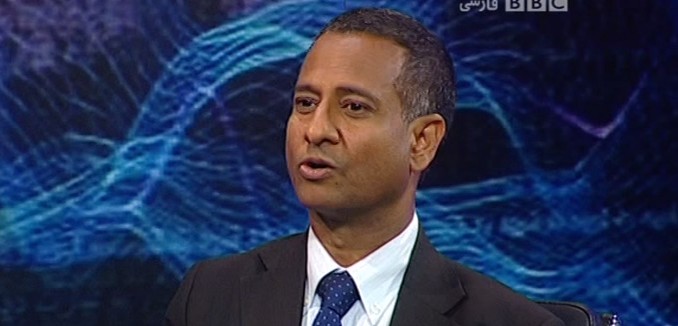Iran has launched a campaign to discredit Ahmed Shaheed, the United Nations special rapporteur on the situation of human rights in Iran, featuring coordinated media coverage of fabricated documents, The Guardian reported Sunday.
Iran has launched a sophisticated smear campaign against the UN special rapporteur investigating its human rights violations by widely spreading a fabricated WikiLeaks cable purporting to show he received bribes from Saudi Arabia.
In a concerted effort aimed at discrediting Ahmed Shaheed in the eyes of the general public, Iranian state-run agencies and semi-official websites simultaneously carried articles claiming that the Saudi embassy in Kuwait had paid the UN envoy $1m to take an anti-Iran position. It dominated many Iranian front pages on Tuesday and an Iranian official later used the false information to question Shaheed’s credibility.
The allegations are based on what is claimed to be a WikiLeaks cable the authenticity of which has been challenged by the organisation itself. “Please show which cable this claim is based on. You fail to link to one of our cables in the article,” the official account of the WikiLeaks tweeted in response to a website carrying the news. Shaheed has also strongly denied the claims.
An examination of the document that Iran claimed implicated Shaheed “showed that it had been fabricated with help from a computer technique to merge two sets of different real diplomatic Saudi letterheads.” Iran launched a similar campaign to discredit staffers of BBC Persian in 2013.
In Should the U.S. Take Iran’s Human Rights Problem More Seriously?, which was published in the April 2015 issue of The Tower Magazine, Senior Editor Ben Cohen profiled Shaheed.
A few days before Obama made his Nowruz speech, Ahmed Shaheed, the UN-appointed Special Rapporteur on the situation of human rights in the Islamic Republic of Iran, issued his seventh report to the United Nations Human Rights Council. Shaheed is a diplomat, academic, and pro-democracy politician from the Maldives, a predominantly Muslim island in the Indian Ocean that, as his Twitter feed records in animated fashion, has itself experienced a severe erosion of democratic rights over the last several years. He also sits on the Board of the Universal Rights Group, a think-tank located in Geneva.
Shaheed is the first incumbent in the Special Rapporteur’s position, having been appointed in 2011 just as the Human Rights Council began an expansion of its monitoring of specific states. Over the next three years, it added further mandates to include North Korea, Syria, Mali, the Central African Republic and other countries where human rights are routinely and systemically abused—a welcome development, for once, in a body that is still disproportionately concerned with attacking Israel.
During his term, Shaheed has been diligent in producing reports that document, in sober and careful fashion, the Iranian regime’s contempt for the basic human freedoms enshrined in the UN’s own charter. Hillel Neuer, the executive director of UN Watch, a Geneva-based NGO that documents how authoritarian regimes around the world manipulate the UN to their own ends, told me that Shaheed’s is “one of the rare mandates on … an oppressive regime and you have a mandate holder who’s running with it. Shaheed’s active on Twitter, he’s active on side events, and he really seems to care.” …
When I spoke to Shaheed shortly after the release of his latest report, he cautiously expressed hope that there were figures around Rouhani who might be open to a more substantive engagement on human rights. He also speculated that a lifting of sanctions in the context of a nuclear deal might also lead to greater international engagement with Iran, “and therefore exposure and pressure on Iran to improve its human rights record.” Shaheed told me, however, that “overall the country is getting worse on human rights practices, certainly since I’ve been observing it.”
In Shaheed’s view, the right to life is the most pressing of the myriad human rights concerns currently in play in Iran. “At least 753 individuals were reportedly executed in 2014 (the highest total recorded in the past 12 years),” his report revealed. “This includes the execution of 25 women and 53 public executions.”
I asked Shaheed what requests should be put to the Iranian regime in the light of that record. “I would say that a moratorium on the death penalty is the most urgent step they need to consider,” he replied. “I say that given the very high number of executions in the country, plus the fact that this has now been widened to include juvenile and political crimes, and corruption as well.”
The Tower has published a downloadable briefing book on the recent nuclear deal with Iran. One of the chapters in the briefing book, written by Peter Kohanloo, documents the ongoing human rights abuses in Iran.
[Photo: BBC Persian / YouTube ]




